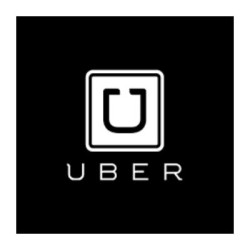Top Class Actions’s website and social media posts use affiliate links. If you make a purchase using such links, we may receive a commission, but it will not result in any additional charges to you. Please review our Affiliate Link Disclosure for more information.

The plaintiffs say Uber tried to dismiss the plaintiffs’ tip claim because it is predicated upon fraud, so therefore the plaintiffs must show fraud to allow the suit to continue. The plaintiffs argue that their Uber claim revolves around violations of state law, not fraud.
The plaintiffs contend, “Not only has this argument already been rejected by this Court, but Uber is simply incorrect that Plaintiffs’ § 351 claim involves misrepresentation and fraud as an essential element.”
The drivers allege that Uber’s argument that the company fraudulently said its fares included gratuities was irrelevant to the case, and what the plaintiffs are actually claiming is that Uber collected tips but did not pass those monies on to the drivers.
The Uber drivers say that their claim is based on an alleged statutory violation of the California Labor Code that indicates an employer cannot take part or all of a gratuity that was left for an employee.
In addition to their claim that Uber misclassified them as contract workers when they were actually treated as employees, the company also deducted a commission from the total, including tips, before paying drivers what it owed them.
The drivers claim that Uber communicated to customers via their website and mobile app that tips were included, and Uber’s failure to provide that tip to the drivers is in violation of state law.
“According to this [Uber’s] logic, an employer could inform customers that part of the charge they were paying constituted a gratuity for the workers, but then could later say that this was not the case simply because it chose not to remit the gratuity to the workers,” the drivers argued.
The drivers also said that as part of their claim, they needn’t show that their riders believed the fare they paid included a tip, as Uber claimed they were required to do in order to have standing to bring the suit. The drivers said all they needed to do was simply show that Uber made the claim to riders that tips were included in the fare.
In November 2014, Uber changed its contract to add a disclaimer that indicated fares don’t include tips. The drivers say the company’s action does not justify having all cases involving driver tips after that date, and that a judge or jury should decide if the disclaimer would essentially void all subsequent claims or if the disclaimer was “too little, too late.”
In Uber’s motion to dismiss, the company asked for a reversal of class certification saying that Uber has not consistently nor uniformly told drivers that gratuities are included in the price of the fares. In response, the drivers said that the court has already rejected these arguments previously brought forth by Uber, and that the plaintiffs did not have to show that all customers received the same information about the inclusion of tips in the fares.
This suit, filed in August 2013 has continued despite Uber’s motions to dismiss and Uber has been required to hand over training and termination documents of the drivers involved in the lawsuit. It is one of a number of lawsuits across the country alleging that Uber misclassified drivers as independent contractors rather than employees.
The Judicial Panel on Multidistrict Litigation ruled last month that it will not consolidate all of the Uber driver lawsuits because the state laws involved in the cases vary too much to be considered in a consolidated case.
The Uber Drivers Class Action Lawsuit is O’Connor et al. v. Uber Technologies Inc. et al., Case No. 3:13-cv-03826, in the U.S. District Court for the Northern District of California.
Join a Free California Overtime, Wage & Hour Class Action Lawsuit Investigation
If you were forced to work off the clock or without overtime pay in California within the past 2 to 3 years, you have rights – and you don’t have to take on the company alone.
ATTORNEY ADVERTISING
Top Class Actions is a Proud Member of the American Bar Association
LEGAL INFORMATION IS NOT LEGAL ADVICE
Top Class Actions Legal Statement
©2008 – 2024 Top Class Actions® LLC
Various Trademarks held by their respective owners
This website is not intended for viewing or usage by European Union citizens.















One thought on Uber Drivers Say Wage & Hour Class Action Doesn’t Need to Show Fraud
Would like to see Uber award shares of their new offering of stock to all drivers based upon the number of rides each driver record shows. Seems that would be an incentive for all Uber drivers and the fair, equitable and professional right thing to do.